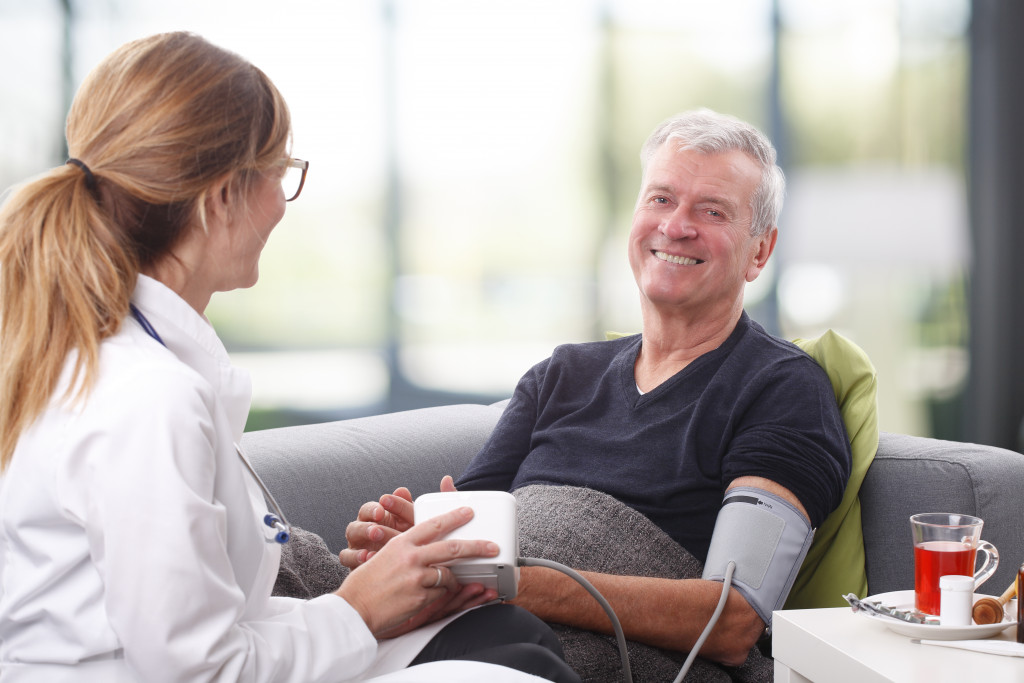COVID-19 continues to disrupt everyday life. Almost two years since it became a pandemic, the number of infected patients continue to rise all over the world. Millions have already died of the virus that was first detected in Wuhan, China in 2019. More are still at risk.
Scientists have done a great job identifying who are most at risk of being hospitalized from and dying from COVID-19. The elderly, those with preexisting illnesses, and those who are overweight or obese are in danger of experiencing life-threatening symptoms from catching the virus.
COVID-19 still has no cure. Treatments are available to patients. More COVID treatment clinical trials are currently underway to find drugs that can best fight the highly infectious and deadly illness.
With the virus still circulating, what can everyone, not just the most vulnerable, do to increase our chances of surviving COVID-19?
Get Vaccinated
The best thing that you can do to protect yourself is to get vaccinated. The vaccines available right now to the public are safe and effective; while the new variant was able to evade it, it can still protect from hospitalization and death.
People who are vulnerable to COVID-19, or someone who is living with people at high risk of life-threatening symptom should get the jabs. The rest of the population should also get vaccinated, even if they have been infected in the past, to protect every member of the community.
Eat a Balanced Diet
Your health is your best defense against any kind of illness, including COVID-19. Make sure your body is capable of fighting the virus off by eating a varied and nutritious diet.
The more vitamins and minerals that are in your system, the better positioned it is to fight off COVID-19. Eating foods rich in beta carotene, like sweet potatoes, carrots, pumpkin, butternut squash, red pepper, kale, collard greens, and others will give you an extra boost with its antioxidant properties. You should also consume foods rich in vitamins C and D, such as seafood and citrus, to strengthen your immune function.
Exercise Regularly

Regular exercise ensures proper blood flow around the body for better circulation — especially to muscles and organs — which means oxygenated blood delivered faster to where it is needed most. This will give your body a boost when going up against COVID-19.
It strengthens the immune system and helps with weight management, which can potentially save you from having to get hospital treatment for metabolic complications such as obesity and diabetes — both of which are linked to contracting COVID-19 or experiencing serious symptoms if infection sets in.
Avoid Stress
Stress is proven to weaken the immune system, making it more likely that you will pick up any sort of illness. Reducing stress by taking time out for yourself each day and doing things you enjoy will help keep your body strong and healthy so that it can fight off COVID-19.
It’s well-known that the pandemic is causing high levels of stress, but it can be managed. You should limit the time you spend doomscrolling, and do something that you enjoy to take your mind off of the current chaos. Read a book, or watch a television series. You can also try to meditate or do yoga, both of which have been proven to reduce stress. Even just walking away from whatever is stressing you out for five minutes and taking deep breaths will work.
If all else fails, you should consider speaking to a mental health professional who can help you navigate your thoughts and emotions as well as give you advice on how to better deal with stress in your daily life.
Get Plenty of Sleep
Getting a good night’s sleep is also important in fighting off the potentially deadly virus.
The body heals itself while we rest, so when you do not get enough shut-eye at night, the immune system will be compromised and it will not be able to build up resistance to COVID-19 or other illnesses. However, a lot of people are sleep-deprived which weakens their body’s response against illnesses.
Experts advise that adults should try to get around eight hours of sleep every day for best health.
Having a good understanding of the illness and its symptoms, knowing how to protect yourself and others around you goes a long way in preventing infection. Until there is a vaccine available for the public, it is up to everyone to speak up about their concerns and ensure that they continue taking steps daily to reduce the risk of severe COVID-19 infection.

